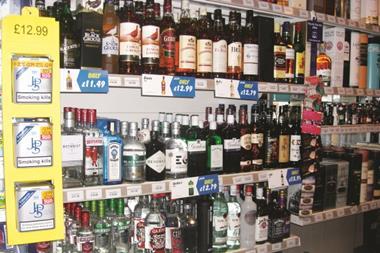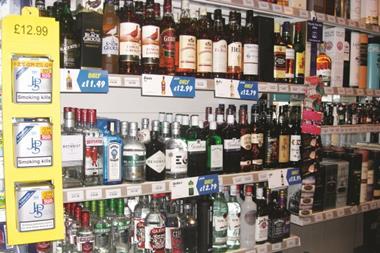Minimum unit pricing (MUP) would benefit public health more than increasing alcohol duty under the current tax system or increasing VAT on alcohol, according to a new report.
Research from the University of Sheffield’s Alcohol Research Group (SARG) compared four policy strategies for regulating alcohol prices to estimate how changes in price would affect alcohol consumption and the subsequent impact on illness and deaths associated with 43 alcohol-attributable conditions in England.
Strategies which strongly link alcohol content with the price of drinks were more suited to tackling health inequalities compared to the current duty system, the study found.
The research revealed that a tax based on alcohol strength and minimum unit pricing would both have large impacts on harmful drinking across all socioeconomic groups, while having minimal effects on those drinking in moderation.
Professor Petra Meier, director of SARG at the School of Health and Related Research (ScHARR), said: “Our findings suggest that minimum unit pricing and taxing alcohol by strength are a well-targeted interventions which would lead to greater reductions in health inequalities compared to the current UK duty system or taxes levied on sales price - a tax system prevalent in many developing countries.
“Our results also suggest that a substantial 13.4% increase in current duty would be required to achieve the same overall harm reductions as a 50p minimum unit price.
“The implementation of minimum unit pricing in Scotland is still held up in a court case brought against the Scottish government by the alcohol industry, where the government needs to demonstrate that minimum unit pricing would have important public health benefits that cannot be achieved as effectively through existing taxation powers.”
But the Scotch Whisky Association, which took legal action against MUP in Scotland in 2012, questioned the report’s conclusions.
SWA chief executive David Frost said: “The ruling from the Court of Justice of the European Union (CJEU) was clear that minimum unit pricing (MUP) of alcohol is illegal if there are other less trade restrictive measures available that can achieve the same aims. The Court made it clear that it believes taxation is such an alternative, which the Sheffield research confirms when looking at different tax options.
“Evidence shows that most hazardous and harmful drinkers are among the wealthier parts of the population, are the least sensitive to price and do not tend to opt for the cheapest alcohol. Therefore they are largely unaffected by MUP.
“In Scotland, measures already in place to tackle misuse seem to be working. Alcohol-related death rates, including deaths from alcoholic liver disease, have declined 32% from a peak in 2003.”


















No comments yet